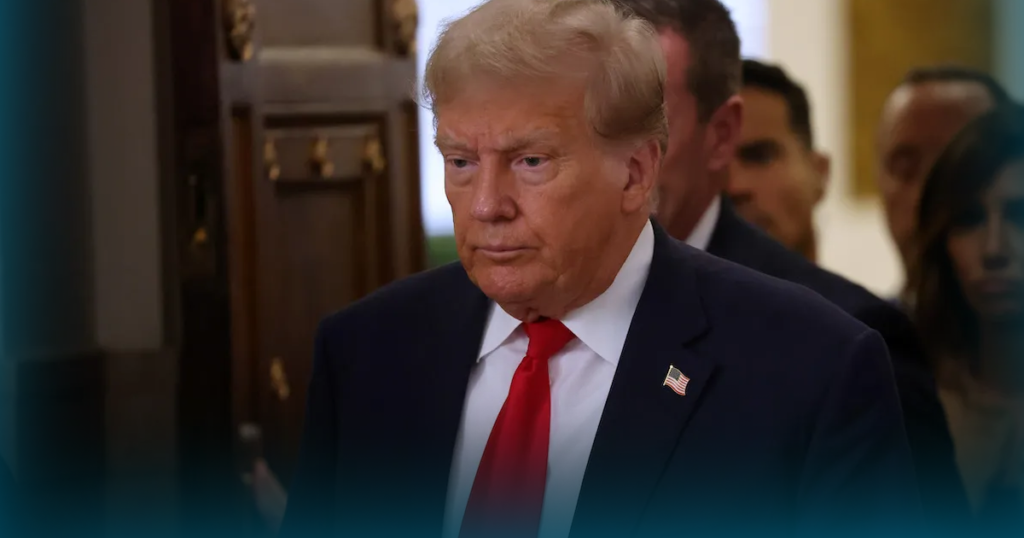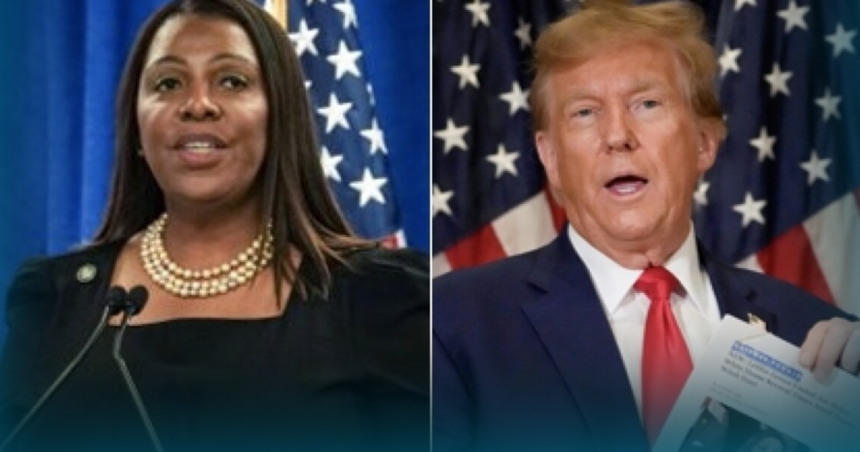Donald Trump may lose some of his cherished properties if he fails to pay his massive New York civil fraud fines. He gives the state around $454 million, plus interest, and the balance is increasing by $87,502 every day until it is paid
Attorney General Letitia James of New York told ABC News on Tuesday that in the event that the former president is unable to pay the costs associated with Judge Arthur Engoron’s order from February 16, she will look to seize some of his assets.
After developing the real estate empire that propelled him to fame and the White House, Trump lied for years about his wealth, according to Engoron’s conclusion. Trump promises to file an appeal and denies any wrongdoing.
James, a Democrat, stated in an interview with media reporter Aaron Katersky that if he lacks the money to pay the order, “we will apply for decision enforcement mechanisms in court and we will ask the judge to confiscate his property.”
After two consecutive court setbacks, Donald Trump’s capacity to pay his escalating legal bills is becoming more and more questionable. A jury found him liable in January for defaming author E. Jean Carroll, and the judgment was $83.3 million.

Donald Trump stated last year that he has $400 million in cash on hand, but his court fines would deplete those funds. The remaining portion of his alleged multibillion-dollar net worth consists of real estate, investments, golf courses, skyscrapers, and other possessions.
However, don’t count on James attempting to seize the Mar-a-Lago or Trump Tower keys right now. Trump’s appeal is expected to put a stop to the penalty collecting while the case is being handled.
If Donald Trump Can’t Pay, State can Sell his Properties
Gregory Germain, a law professor at Syracuse University, stated that if Donald Trump is unable to pay, the state “could collect and sell his possessions, lien his real property, and seize anyone who owes him payment.”
When a defendant lacks the resources to pay a civil penalty, the court may seize assets as a standard legal strategy. A well-known instance of this occurred in 1999 when O.J. Simpson’s Heisman Trophy was taken and auctioned off to partially pay a $33.5 million wrongful death award against him.
If Donald Trump has enough money, or is able to free up enough money, to pay his fine and accruing interest, he may be able to escape having his assets seized.
The extent of his wealth remains unclear given the majority of information regarding Trump’s finances originates from him, through his government disclosures and the yearly financial statements that Engoron has declared to be false.
For the fiscal year that ended on June 30, 2021, Donald Trump’s most recent annual financial disclosure indicated that he had around $294 million in cash or cash equivalents.
After that, in May 2022, he sold his hotel in Washington, D.C., and in June 2023, he added almost $186.8 million by selling the rights to run a golf course in New York City, according to state attorneys. Trump must give the state those revenues, plus interest, as part of his punishment.
With his decision last week to overturn a previous order and continue operating his real estate empire under strict guidelines, including control from a court-appointed monitor, Engoron spared Donald Trump’s real estate empire from what the Republican front-runner referred to as the “corporate death penalty.”
James told ABC that her office is located just across the street from a Trump-owned office building in Lower Manhattan that was the focus of some of the fraud charges in her case, but she did not say which of Trump’s assets the state would wish to confiscate.
According to James, “We are ready to ensure that the judgment is paid to New Yorkers.” Indeed, I gaze upon 40 Wall Street every single day.
Also Read: The US-Mexico Border Crossings Could Be Regulated by the White House Using Federal Legislation


Leave a Reply